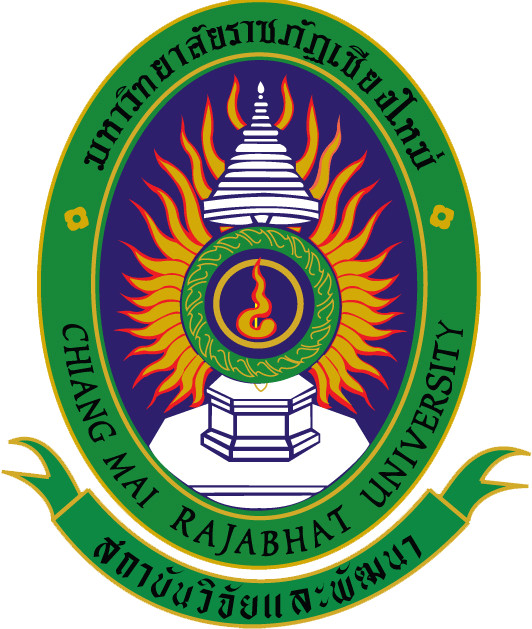
ระบบสารสนเทศงานวิจัย สถาบันวิจัยและพัฒนา มหาวิทยาลัยราชภัฏเชียงใหม่
Research Information System(RIS)
การสร้างสรรค์คุณค่าแบรนด์และโมเดลธุรกิจที่สามารถแข่งขันในตลาดได้ อย่างเหมาะสมสำหรับกลุ่มผู้ปลูกและแปรรูปข้าวอินทรีย์ในจังหวัดแม่ฮ่องสอน
ผู้ช่วยศาสตราจารย์ ดร.มานพ ชุ่มอุ่น
คณะวิทยาการจัดการ
คำสำคัญ :
เลขทะเบียน :
1414-64-MGT-TSRI
บทคัดย่อ
การวิจัยมีวัตถุประสงค์เพื่อสร้างแบรนด์และเรื่องเล่าทางการตลาดข้าวอินทรีย์และ เพื่อพัฒนาโมเดลธุรกิจข้าวอินทรีย์ของกลุ่มผู้ปลูกและแปรรูปข้าวอินทรีย์จังหวัดแม่ฮ่องสอน การวิจัยใช้วิธีการศึกษาแบบผสมผสาน ระหว่างการวิจัยเชิงคุณภาพที่เก็บรวบรวมข้อมูลจากการสัมภาษณ์ เชิงลึก การสนทนากลุ่ม และเอกสารที่เกี่ยวข้อง การวิเคราะห์ข้อมูลใช้การวิเคราะห์เนื้อหา ขณะที่ การวิจัยเชิงปริมาณใช้แบบสอบถามกลุ่มตัวอย่างผู้บริโภคข้าวดอยอินทรีย์ 600 ราย การวิเคราะห์ข้อมูลใช้วิธีการสถิติเชิงพรรณนา ผลการสร้างแบรนด์ พบว่า โครงสร้างแบรนด์เป็นแบบตราเฉพาะที่ชื่อและตราสัญลักษณ์สะท้อนถึงอัตลักษณ์ของความเป็นชนเผ่า แต่ก็แฝงด้วยความร่วมสมัย โดยมีตำแหน่งแบรนด์เพื่อการแข่งขันคือข้าวดอยที่ปลูกด้วยกรรมวิธีทางอินทรีย์ที่ให้ความปลอดภัยสูงและมีประโยชน์ต่อสุขภาพ ผลการสร้างเรื่องเล่า พบว่า องค์ประกอบของเรื่องเล่ามี 3 ส่วน คือ ตัวละคร คือจังหวัดแม่ฮ่องสอนที่เป็นแหล่งปลูกข้าวดอยอินทรีย์จากเมืองสามหมอก เค้าโครงเรื่องที่ฉายให้เห็นภาพของกระบวนการผลิตและการได้มาซึ่งข้าวดอยอินทรีย์ ร่วมกับพิธีกรรมและความเชื่อเกี่ยวกับ การปลูกข้าว และแก่นของเรื่องคือแหล่งข้าวพันปี ข้าวแห่งวิถีชีวิตบนเนินเขาสูงชัน ที่มีจุดเด่น ของข้าวดอยอินทรีย์ที่ปลูกกันมานานตั้งแต่สมัยโบราณและเป็นการสืบทอดภูมิปัญญาจากรุ่นสู่รุ่น
ผลการสร้างโมเดลธุรกิจที่สามารถแข่งขันได้ในตลาด ประกอบด้วย (1) กลุ่มลูกค้า คือกลุ่มคนรักสุขภาพในจังหวัดแม่ฮ่องสอนและจังหวัดเชียงใหม่ (2) คุณค่าที่โดดเด่นของสินค้าคือ ข้าวดอยพันธุ์พื้นเมืองบือโปะโหละที่ปลูกด้วยวิธีการแบบอินทรีย์ (3) ช่องทางการติดต่อสื่อสารกับลูกค้าคือจำหน่ายสินค้าทั้งทางออฟไลน์และออนไลน์ (4) การสร้างความสัมพันธ์ที่ดีกับลูกค้าด้วยการตลาดสายสัมพันธ์ (5) รายได้หลักมาจากการขายข้าวบรรจุถุงและผลิตภัณฑ์แปรรูปจากข้าวดอยอินทรีย์ (6) ทรัพยากรหลักคือที่ดินที่ไม่มีหญ้าหรือวัชพืชและเป็นดินที่อุดมสมบูรณ์ และสายพันธุ์ ข้าวพื้นเมืองที่มีเมล็ดอ้วนสั้นเหมือนข้าวญี่ปุ่น (7) กิจกรรมหลักคือการทำผลผลิตจากข้าวดอยให้มีคุณภาพตั้งแต่การปลูก ไปจนกระทั่งบรรจุเพื่อการจำหน่ายในตลาด และการพัฒนาแบรนด์สินค้า (8) พันธมิตรหลัก ได้แก่ เครือข่ายพันธมิตรเกษตรกรและคู่ค้าทางธุรกิจในตลาดคนรักสุขภาพในแม่ฮ่องสอนและเชียงใหม่ และ (9) โครงสร้างต้นทุนคือต้นทุนการปลูกข้าวและเมล็ดพันธ์ ต้นทุน การผลิตและการแปรรูป ต้นทุนดำเนินการทางการตลาด และต้นทุนการส่งสินค้าไปยังตลาด และท้ายสุด ผลการศึกษาพฤติกรรมผู้บริโภคที่ให้ความสำคัญในแบรนด์ข้าวอินทรีย์ พบว่า ผู้บริโภคให้ความสำคัญในภาพรวมระดับมาก ด้วยคะแนนเฉลี่ยรวม 4.12 ส่วนปัจจัยส่วนประสมทางการตลาดด้านผลิตภัณฑ์ พบว่า ให้ความสำคัญในภาพรวมอยู่ในระดับมาก ด้วยคะแนนเฉลี่ยรวม 4.65 ด้านราคาในระดับมากด้วยคะแนนเฉลี่ยรวม 4.12 ด้านช่องทางจัดจำหน่ายในระดับปานกลาง ด้วยคะแนนเฉลี่ยรวม 3.24 และด้านการส่งเสริมการตลาดในระดับมากด้วยคะแนนเฉลี่ยรวม 3.92
Abstract
This research focused on creating a brand and marketing storytelling for organic rice and to develop an organic rice business model for the organic rice farmer and processor in Mae Hong Son Province. The research involved the application of the mixed method as the qualitative research instrument, which consisted of in-depth interviews, group discussions and relevant documents and data analysis used content analysis, while the quantitative instrument consisted of questionnaires administered to 600 consumers and descriptive statistic was for data analysis. Branding results indicated that a brand portfolio would include an individual brand in which the name and logo reflected a tribal identity but hidden with a contemporary. The competitive brand positioning was organic rice grown with organic methods that provided high safety and health benefits. The storytelling finding showed composition of the storytelling had 3 parts: the characters are places in Mae Hong Son Province which is the source of organic rice cultivation from the city of 3 mists. A storyline showed the pictures of the production process and the acquisition of organic rice, together with rituals and beliefs about rice planting. The theme of the storytelling was the source of millennial rice, rice of life on a steep hill that has been planted for a long time since ancient times and has been passed on wisdom from generation to generation. The business model building showed that (1) customer segment were the health conscious groups in Mae Hong Son and Chiang Mai provinces. (2) value proposition was Bue Po Lo, the native rice grown by using organic methods (3) channels were both offline sales and online sales (4) customer relationship used the customer relationship marketing. (5) revenue stream came from the sale of packaged rice and processed organic rice products. (6) key resources were the land that had no grass or weeds and was fertile and indigenous rice varieties with short fat grains like Japanese rice. (7) Key activities were to produce quality organic rice production from planting until packing for distribution in the market, also brand development. (8) Key partners were farmer alliance networks and business partners in health conscious groups in Mae Hong Son and Chiang Mai Province. (9) cost structures were the cost of rice and seed cultivation, cost of production and processing, cost of marketing and cost of delivering products to the market. Finally, the results of a study on consumer behavior that gave importance to organic rice brands found that consumers gave a high level of overall importance with an average score of 4.12. As for marketing mix factors in term of product, it was found that the overall importance was at a high level, with a total average score of 4.65, in terms of price at a high level with a total average score of 4.12, distribution channels at a moderate level with a total score of 3.24 and a high level of promotion with an average score of 3.92.
ไฟล์งานวิจัย
26 07 ต.ค. 2564
สำนักงานคณะกรรมการส่งเสริมวิทยาศาสตร์ วิจัยและนวัตกรรม (สกสว.)
สำนักงานคณะกรรมการส่งเสริมวิทยาศาสตร์ วิจัยและนวัตกรรม (สกสว.) ชั้น 14 อาคาร เอส เอ็ม ทาวเวอร์ 979/17-21 ถนนพหลโยธิน แขวงสามเสนใน เขตพญาไท กรุงเทพฯ 10400
02 278 8200
callcenter@trf.or.th, webmaster@trf.or.th